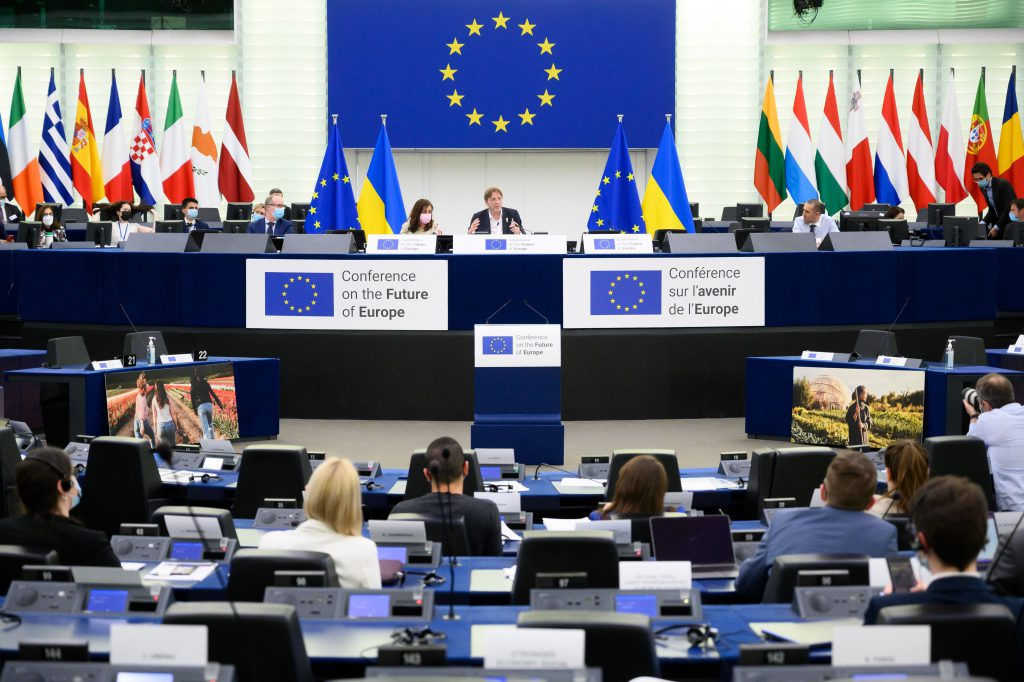Future of Europe: first debate on Conference proposals wraps up

The Conference on the Future of Europe is in its final phase, following last weekend’s exchanges on preliminary draft proposals on all themes. The Plenary and the nine Working Groups started working on the Conference’s final proposals at a meeting held on 25-26 March in the European Parliament in Strasbourg with some participating online.
Preliminary drafts, prepared by the Chairs and citizens’ spokespersons and assisted by the Common Secretariat, were discussed by all members of the Plenary: citizens, MEPs, national parliamentarians, representatives of the Council, the Commission, social partners, civil society and representatives of local and regional authorities. These drafts were mainly based on recommendations from the European Citizens’ Panels and national panels, ideas gathered through the Multilingual Digital Platform, as well as input from the debates in Plenary and Working Group sessions.
Presenting the work of the European Parliament Working Groups, MEPs stressed that even the most ambitious citizens’ proposals must be taken seriously and pledged to defend the valuable work done by European citizens within the Conference process. In line with the citizens’ recommendations, many MEPs called for stronger European policies in areas such as health, foreign policy, youth, education and culture. Europe must become more ambitious and take the lead in digital connectivity, according to some, and should support its SMEs, according to others.
Most MEPs highlighted that a stronger European Union is also better able to address the war in Ukraine. Some called the Russian invasion a watershed moment for the future of Europe, while others appealed for the EU to be better armed against crises in the future.
Recordings of the Working Group meetings are available on the Parliament’s Multimedia Centre. Catch up on the Plenary’s debates using the following links:
- Presentation of National Events, stakeholders’ contributions
- Stronger Economy, Social Justice and Jobs; Youth, Education and Culture; Digital Transformation
- European Democracy; Values and Rights, Rule of Law and Security
- Climate Change and the Environment; Health
- EU in the World; Migration
Next steps
The next Plenary session is scheduled for 8-9 April in Strasbourg, where Working Groups will present their consolidated the proposals. The Plenary is expected to put forward its final proposals by consensus to the Executive Board in late April, so that the final report can be delivered to the Presidents of the EU institutions on 9 May in Strasbourg.
